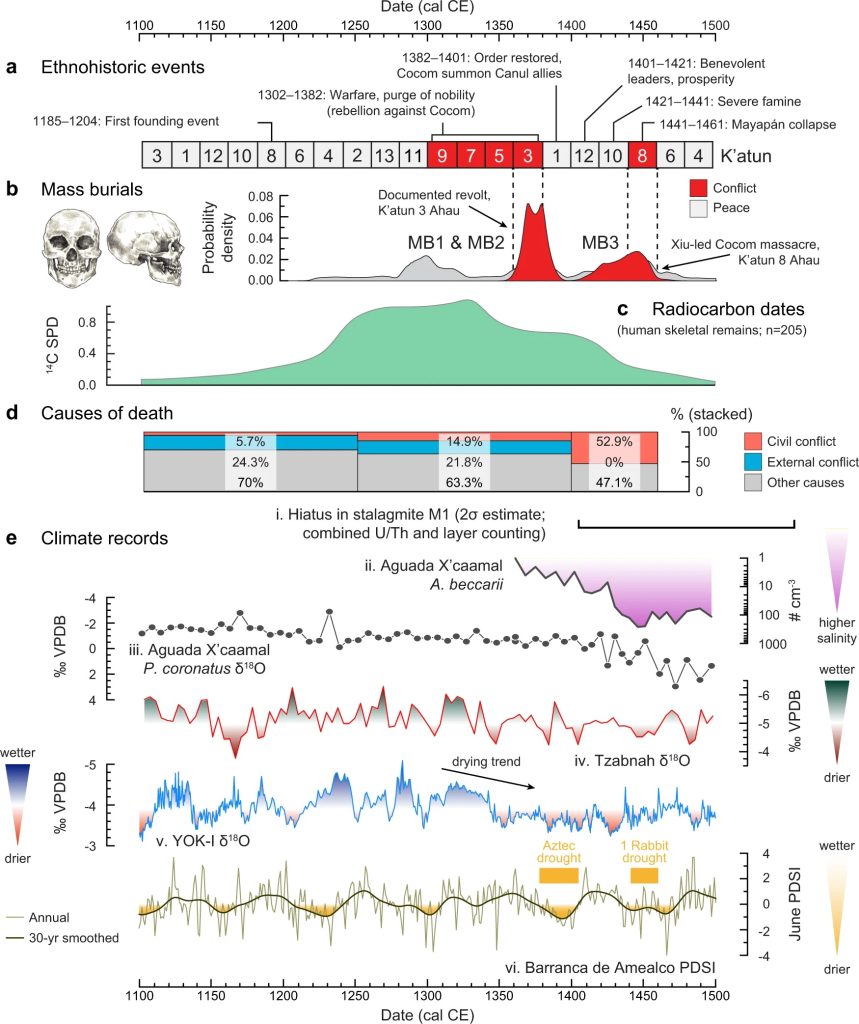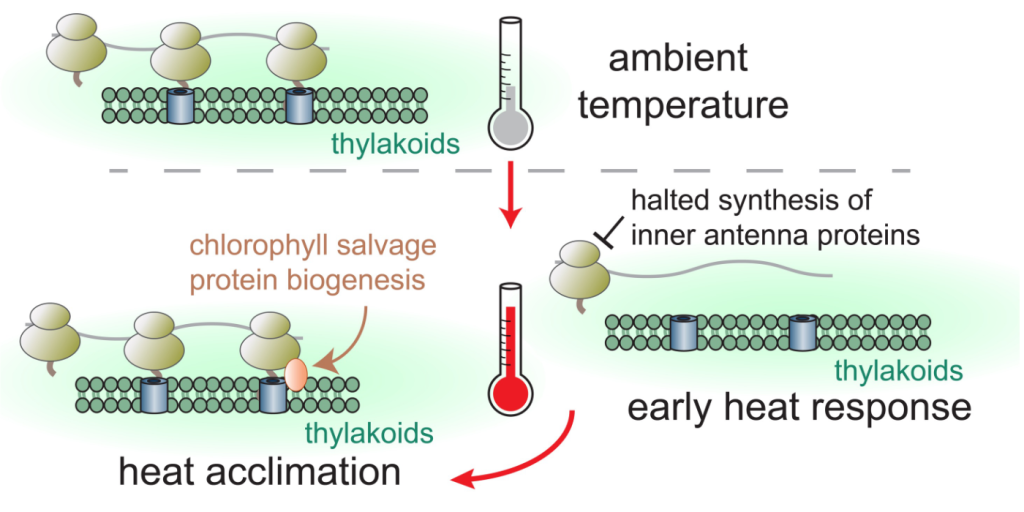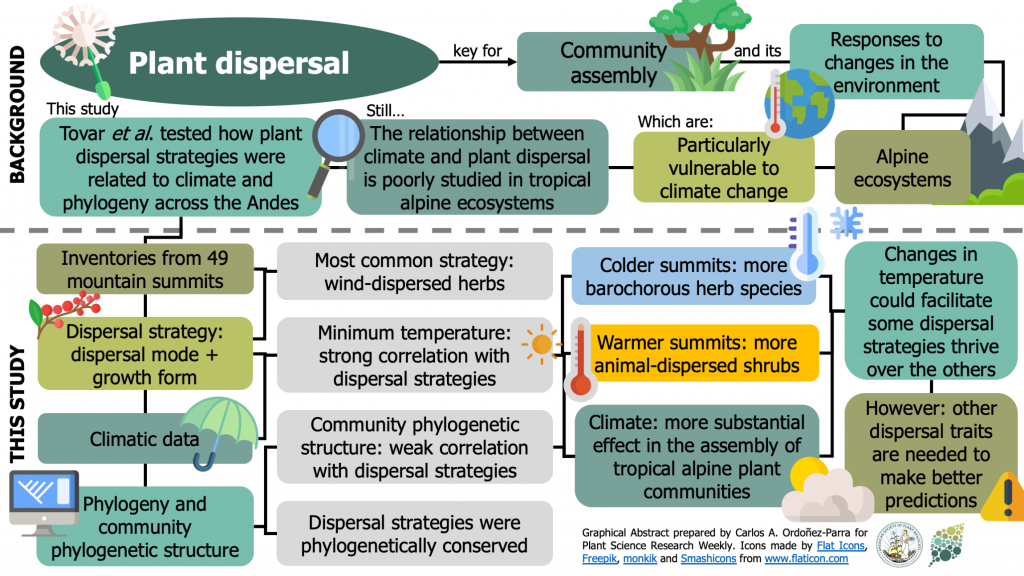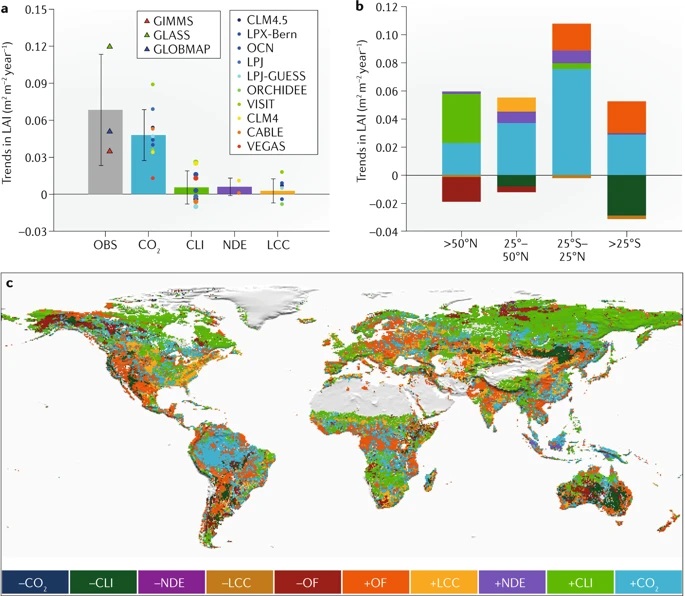
Drought-induced civil conflict among the ancient Maya (Nature Comms)
Plant Science Research WeeklyThe observation that “Those who cannot remember the past are condemned to repeat it,” (attributed to philosopher George Santayana) is quite relevant for our efforts to comprehend the impacts of climate change. As we observe temperature and rainfall records being broken with increasing frequency,…

The chloroplast protein biogenesis network at the ribosome during heat acclimation
The Plant Cell: In a NutshellBy Raphael Tröscha, Fabian Riesb, Lisa Désirée Westrichb, Felix Willmundb, a Max Planck Institute of Molecular Plant Physiology, Am Mühlenberg 1, 14476 Potsdam-Golm, Germany; b Molecular Genetics of Eukaryotes, University of Kaiserslautern, Paul-Ehrlich-Str. 23, 67663 Kaiserslautern, Germany
Trösch,…

High temperature and heredity
The Plant Cell: In a NutshellJoke De Jaeger-Braet & Arp Schnittger, Institute of Plant Science and Microbiology, Department of Developmental Biology, University of Hamburg, Germany
De Jaeger-Braet and colleagues explore the effects of high temperatures on meiotic recombination in Arabidopsis.
Background: One of the hidden,…

Plantae Presents Panel: Evo-devo as a discovery tool
Blog, Plantae Presents, Research SkillsPlantae Presents - Evo-devo. What can we learn from comparative studies?
Recorded Wednesday, October 28 - 10 am EDT
We're pleased to announce the second in our series of webinars that are drawn from contributed short videos, followed by a panel discussion. This week we'll look at the topic of…

Stem diameter fluctuations provide a new window into plant water status and function
Blog, Plant Physiology, Plant Physiology: News and Views, ResearchAuthor: Robert Skelton
[email protected]
Affiliation: South African Environmental Observation Network, Private Bag X7, Claremont, 7735, South Africa
Knowledge of the spatio-temporal dynamics of water storage in plant stems is fundamental to understanding plant physiological function under…

Alpine plant growth and reproduction dynamics in a warmer world (New Phytol.)
Plant Science Research WeeklyClimate warming affects plant performance in warm and dry regions. In cold regions, warming stimulates growth and reproduction, but its effects can vary depending on location and species. Whether herbaceous plants can adapt to increasing temperatures is unclear and a matter of concern. In this study…

Plant dispersal strategies of high tropical alpine communities across the Andes (J. Ecol.)
Plant Science Research WeeklySince dispersal is crucial for the assembly of plant communities, a better understanding of its relation to climate is needed to predict plant communities' responses to changes in the environment. However, this kind of association is still missing in tropical alpine ecosystems –one of the most vulnerable…

Community diversity outweighs effect of warming on plant colonization ($) (Global Change Biol.)
Plant Science Research WeeklySeveral studies have addressed growing concerns regarding increases in exotic plant colonization of communities in response to a warming climate. However, both abiotic (e.g., warming climate) and biotic (e.g., changes in community diversity) shifts can be simultaneous results of warming and both can…

Review: Characteristics, drivers and feedbacks of global greening (Nat. Rev. Earth Environ.)
Plant Science Research WeeklyWhenever we talk about global trends there are of course local variations. Here, Piao et al. discuss recent trends of global greening, which is occurring at arctic as well as temperate and tropical regions. Overall, this greening is attributed to increasing atmospheric CO2, which promotes plant growth,…

